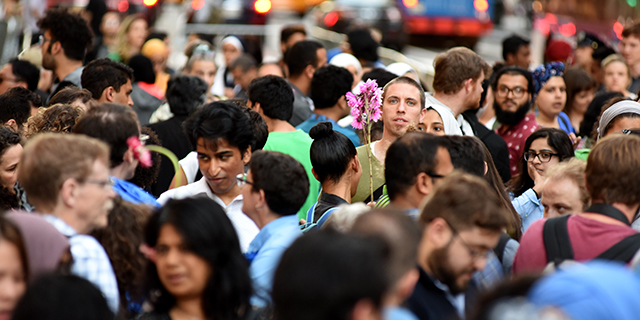
COVID-19 makes diverse and multicultural media more important than ever
The coronavirus pandemic has left many communities vulnerable and misinformed, which makes the role of local media paramount.
The coronavirus pandemic has brought a level of change to just about every facet of our lives, including how businesses can operate.
For the media industry, this holds strikingly true as both local and national news organizations face increasing difficulties in the age of the pandemic.
“We are under the worst sets of storms hitting the United States at the same time,” Steve Clemons, Editor-in-Chief at The Hill, said of the pandemic.
Part of that storm has highlighted the heightened need for diverse media coverage.
To help address this need, the Multicultural Media Correspondents Association (MMCA), the premier organization working to move the needle on all facets of media diversity, held its first of a bi-weekly discussion series with congressional and business leaders aimed towards ensuring that diverse media can survive in the age of COVID-19, and well beyond.
“Media diversity is an issue that has the potential to impact every community,” said Rep. Val Demings.
According to the American Public Health Media (APM) Research Lab, COVID-19 has claimed more than 80,000 Americans. For each 100,000 Americans of their respective ethnic group, Blacks (42.8), Latinos (19.1) and Asians (18.4) have all died at a much higher mortality rate than Whites (16.6).
A diverse media is critical towards shedding light on these numbers and the impact the pandemic is having on communities, particularly those of color.
When Demings thinks back to some of the other significant events that have taken place throughout American history, it was the multicultural journalists who added the context to truly tell the entire scope of what was happening.
“Someone needs to not only tell the facts of these stories, but they should have to put it into perspective,” she said. “Who tells the story matters.”
That held true then, it holds true now, and will continue to hold true long after the pandemic eventually comes to an end.
To that extent, Rep. Judy Chu added, “We cannot afford to leave communities of color and vulnerable populations without news and life-saving information during a crisis like this.”
RELATED CONTENT
Juan Senor, President of Innovation Media Consulting, said diverse media coverage is something that should never be lost.
“Access to fact-based information is a human right and is vital to civil society and is vital to public health. So therefore, it must be protected,” he said.
Beyond the need for diverse media, the COVID-19 pandemic has also highlighted some of the vulnerabilities in our healthcare system.
Those vulnerabilities can be credited for the disproportionate infection and mortality rates for communities of color.
“What COVID-19 has exposed to us is that there are people in our community that have preexisting conditions that have not been addressed,” said Chu.
A diverse and multicultural media is paramount in telling the full story of the impact of the COVID-19 pandemic. It’s important for local media organizations to continue telling these stories in a way that doesn’t leave any communities out of the loop.
Senor pinpointed four ways diverse media organizations can find a way forward:
- Public funding
- Philanthropy
- Taxing the tech platforms
- Asking readers to pay for news
As diverse media organizations work to survive the pandemic, the current approach will go a long way towards determining its success moving forward.











LEAVE A COMMENT:
Join the discussion! Leave a comment.